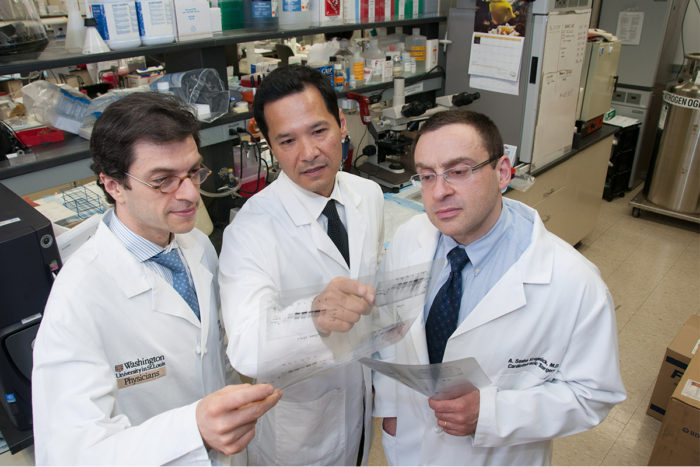Immunology lab identifies gene involved in limiting lung injury
New research finds a gene that protects some patients with lung transplants and other injury from pneumonia, sepsis and other trauma

From left, Daniel Kreisel, MD, PhD, Andrew Gelman, PhD, and Alexander Krupnick, MD, have established a large combined laboratory to investigate lung immunology and cancer from multiple angles.
Researchers in the Washington University thoracic immunology lab have identified a gene that limits damage to the lung during acute stress from illness, trauma or transplant.
Defects in the bcl3 gene likely leave some patients with pneumonia, sepsis, trauma or who have had lung transplants more vulnerable to lung injury, they say.
The scientists also have demonstrated that this critical gene, which is active in bone marrow cells, can prevent lung injury in mice. The research was published in the Journal of Clinical Investigation.
The new discovery lays the groundwork for developing therapies to reduce complications of pneumonia, trauma and lung transplants, which affect many thousands of people annually in the US.
Andrew Gelman, PhD, and surgeon-scientists Daniel Kreisel, MD, PhD, and Alexander Krupnick, MD, serve as heads of the thoracic immunology lab.
The lab has made notable contributions to the understanding of lung immunology and lung cancer, especially the problem of poor long-term survival in lung transplant patients.
Researchers in the lab developed the first mouse model of lung transplantation in 2007 and have since developed a mouse model for right lung transplant.






